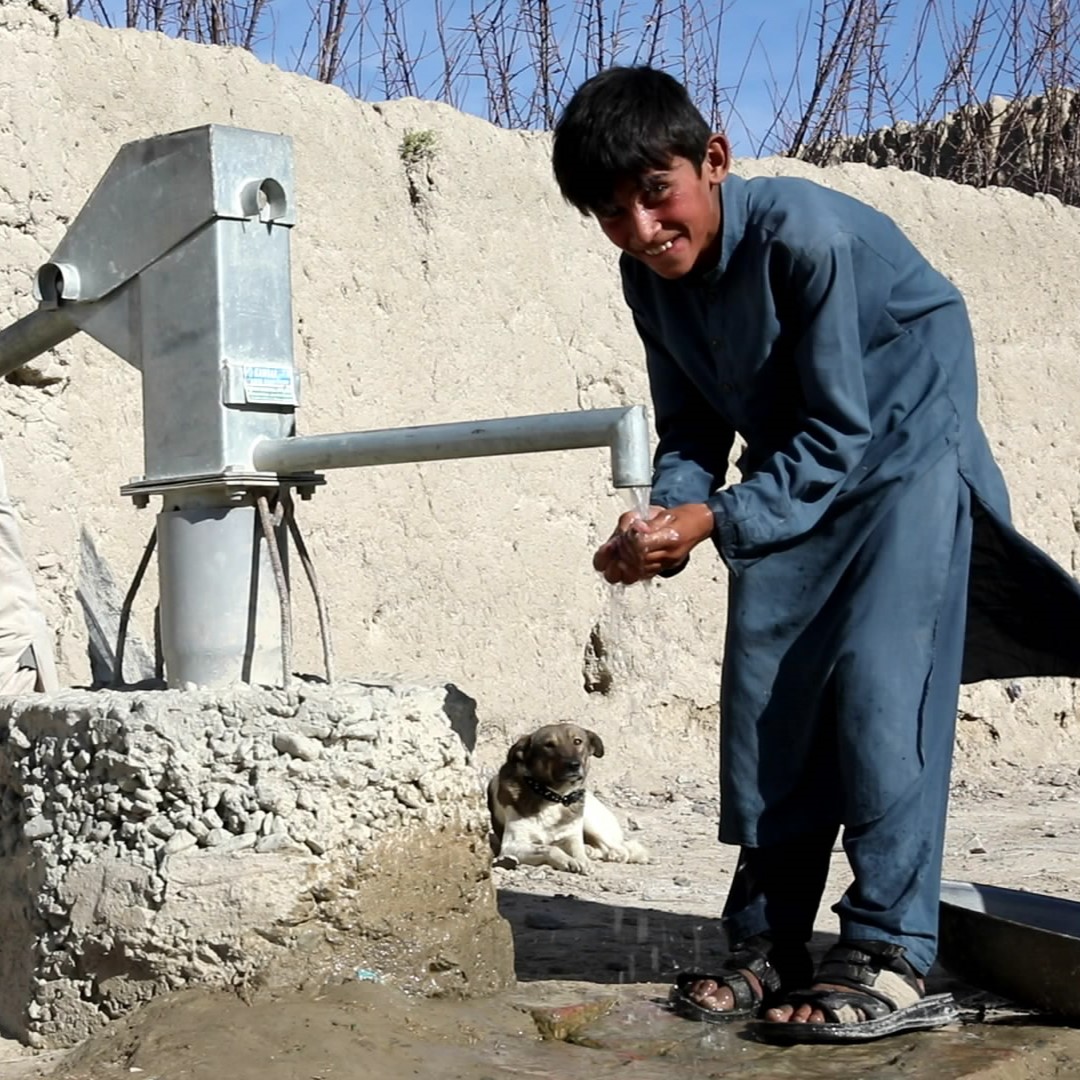Few people in Pakistan know that the region of Waziristan, often in the limelight due to ‘bad news’, is one of the most fertile regions of Khyber Pakhtunkhwa (KP). This region, which produces billions of rupees worth of chalgoza (pine nuts) annually, is divided into North and South Waziristan. South Waziristan is forty per cent of the total area of the tribal areas, and under the new administrative division, it has been divided into two districts. Out of these, the Mehsud tribal area is called Upper South Waziristan, while the Wazir tribal area is called Lower South Waziristan.
In this region, many people of the Wana region of Lower Waziristan are involved in agricultural activities and cultivating vegetables and fruit. Locally, it is said that the agricultural revolution in Waziristan came due to them. The produce of Wana and adjoining areas reaches the vegetable and fruit markets across Pakistan.
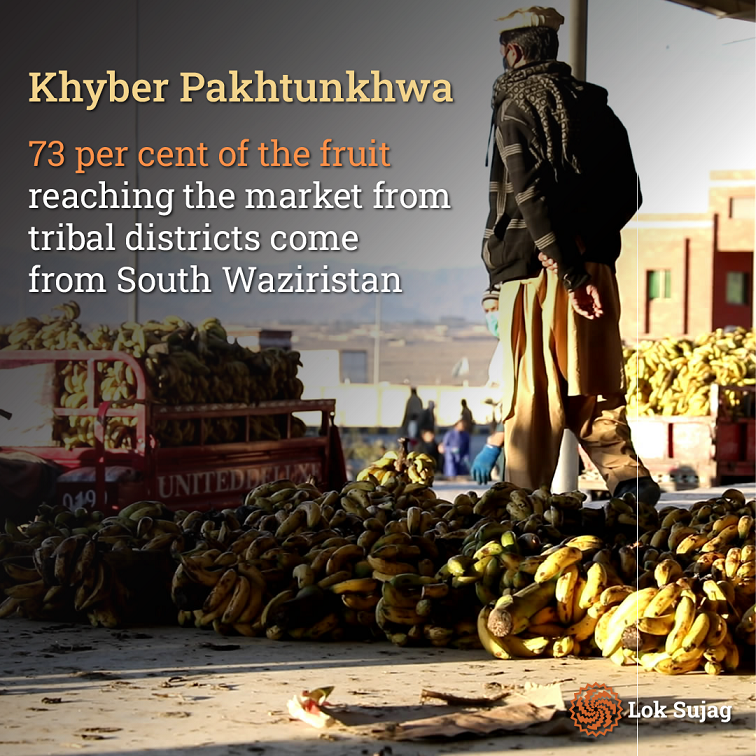
According to the KP government, 73 per cent of the fruits reaching the market from the tribal districts come from South Waziristan. In the context of recent administrative divisions, 71 per cent of this fruit is reaching the market from Wana.
Rafiquddin Wazir, associated with the fruit business, says that the soil of Wana is a gift of nature. Here, the plant’s growth is twenty to twenty-five per cent faster than in other areas. But for the last few years, the underground water level in Wana has been getting dangerously low, so agriculture here is feared to be affected.
According to Engineer Saifur Rahman Wazir from Wana, the water level is going down by 30 to 40 feet every year, a sign of disaster in the coming times.
He says that between 10,000 to 20,000 solar tube wells are running in Wana, which is critical given the rapidly decreasing water level.
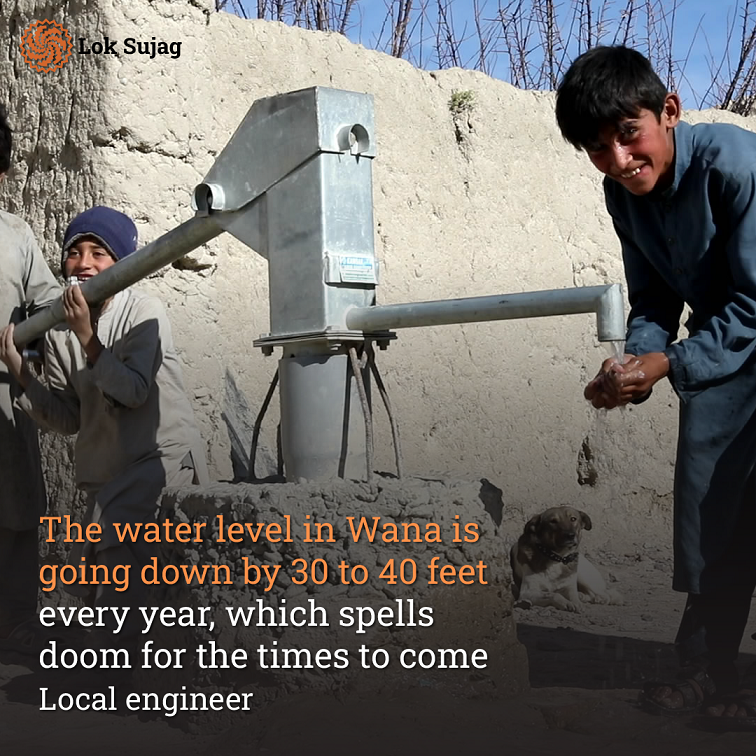
Despite the unavailability of electricity, there are many tube wells in Wana. Safi ur Rahman Wazir states that in Wana’s population of approximately four lakhs, more than three lakhs have established orchards, many of them having multiple orchards. All of these gardens rely on tube well water powered by solar energy.
“We don’t get electricity bills due to solar energy; the motors run all day, the amount of water extracted from the ground is more than necessary, and a large part of it is wasted,” Safi ur Rahman Wazir says.
According to him, there is a need to build small dams on an emergency basis in Wana or the whole district of Lower South Waziristan. Otherwise, there will be a water shortage in the coming years and people may have to leave the area.
Wana Welfare Association, an active social organisation in Wana, has been raising awareness about the decreasing water levels in the area and has been working diligently for several years to address this issue and gain control. They have been alerting the public about the water scarcity problem.
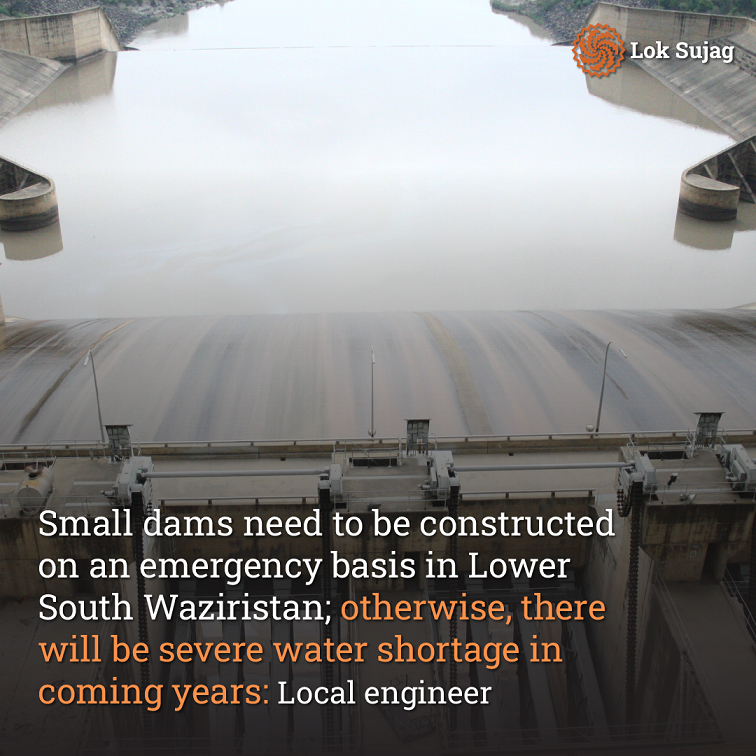
The former chief minister of KP, Mehmood Khan Tanzeem, sanctioned Rs 50 crore to review this issue at the organisation’s request, which was part of the Annual Development Program (ADP). However, the provincial government of Pakistan Tehreek-e-Insaf could not stick to a comprehensive solution to this collective problem and with each passing day, instead of the solution suggested by the feasibility report, it was divided into many small projects.
Senior journalist Dilawar Khan Wazir has been actively identifying and solving the water problem in Wana for a long time. He says that the beauty and fertility of the Wana have also come under threat due to the decrease in the water level. He says that there is a need to build small dams in Wana. A technical team is visiting Wana in the next few days to examine suitable sites for such a dam.
Also Read
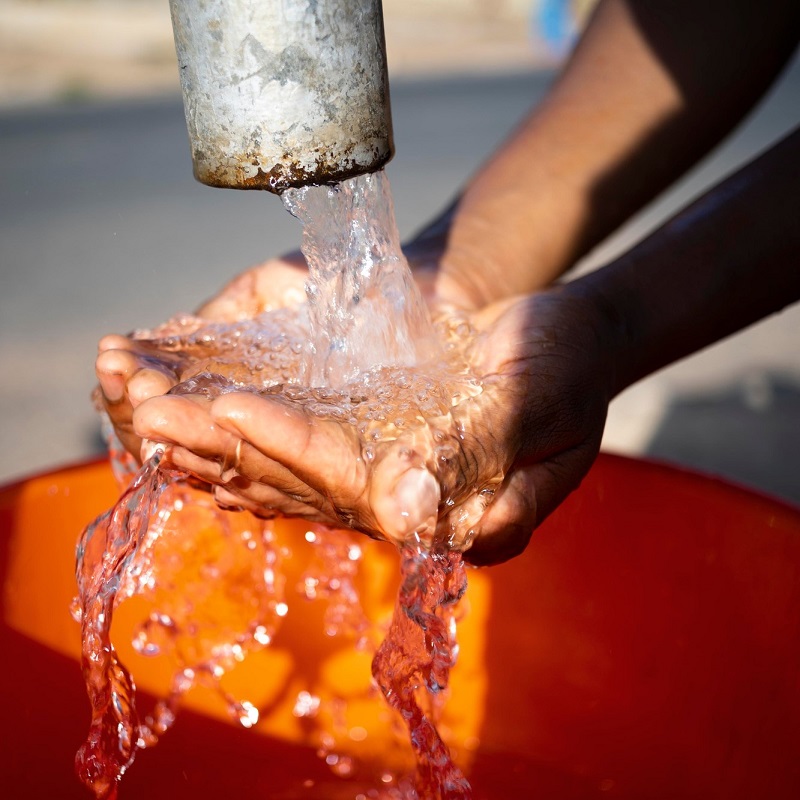
Rajanpur's quiet nightmare: The menace of contaminated underground water
Given the seriousness of the situation, a Jirga consisting of nine major sub-tribes of the Ahmadzai Wazir tribe was held in Wana in the past few days, in which important regional leaders participated.
The representatives of all the tribes involved in this Jirga were determined to solve this problem. They said in a joint declaration that in case of the construction of a small dam, the prevailing compensation (national commission) will not be taken in the tribal areas, which means that the people of the area agree to solve this dangerous problem.
Jalal Wazir, General Secretary of the Wana Welfare Association, said that the water issue is important for the future of his area. According to the technical survey, the water in the tube wells is also drying up due to the decrease in the underground water level. The area’s people, leaders and youth are trying to solve this problem through national consensus and achieving this goal will be a great success for them.
Published on 19 Oct 2023
